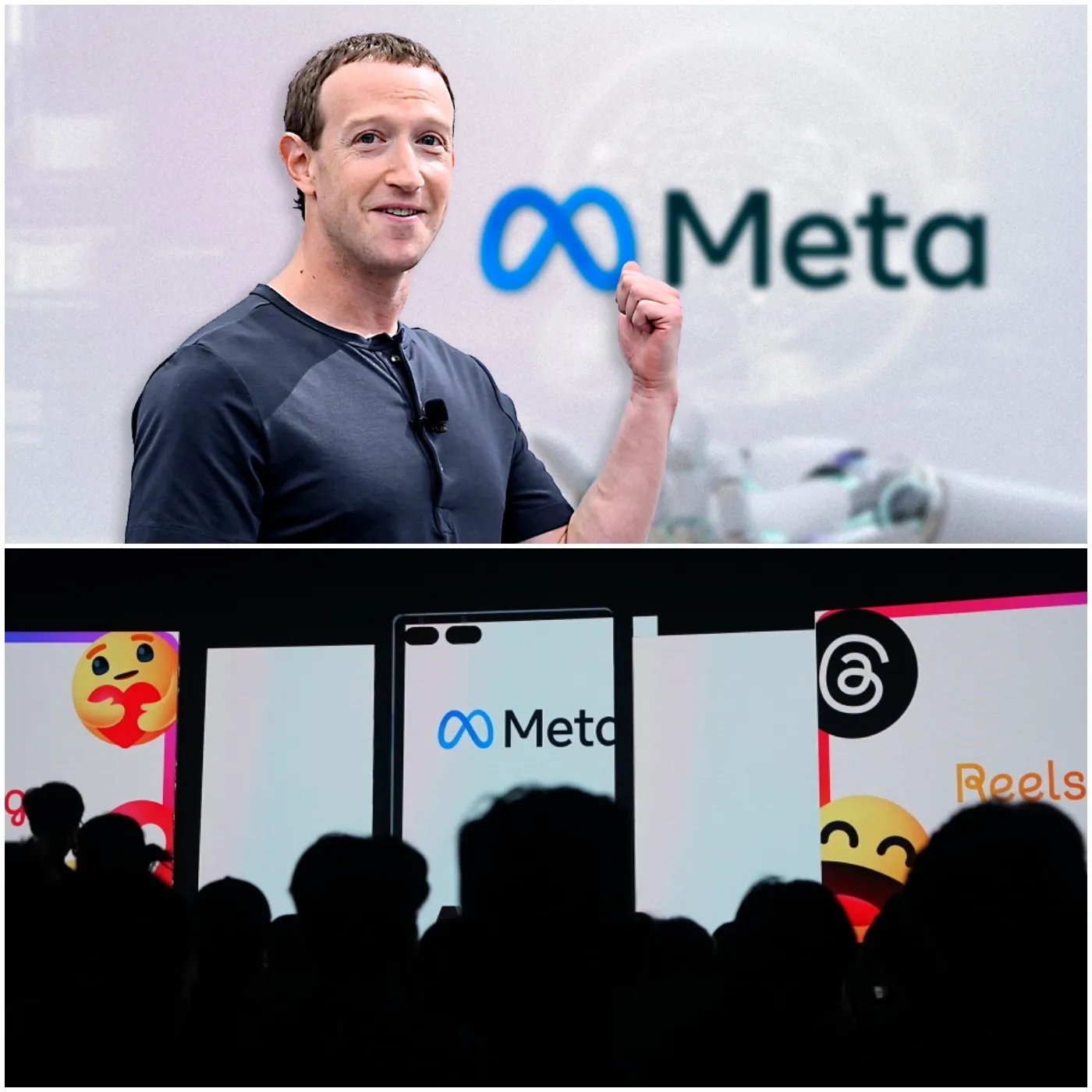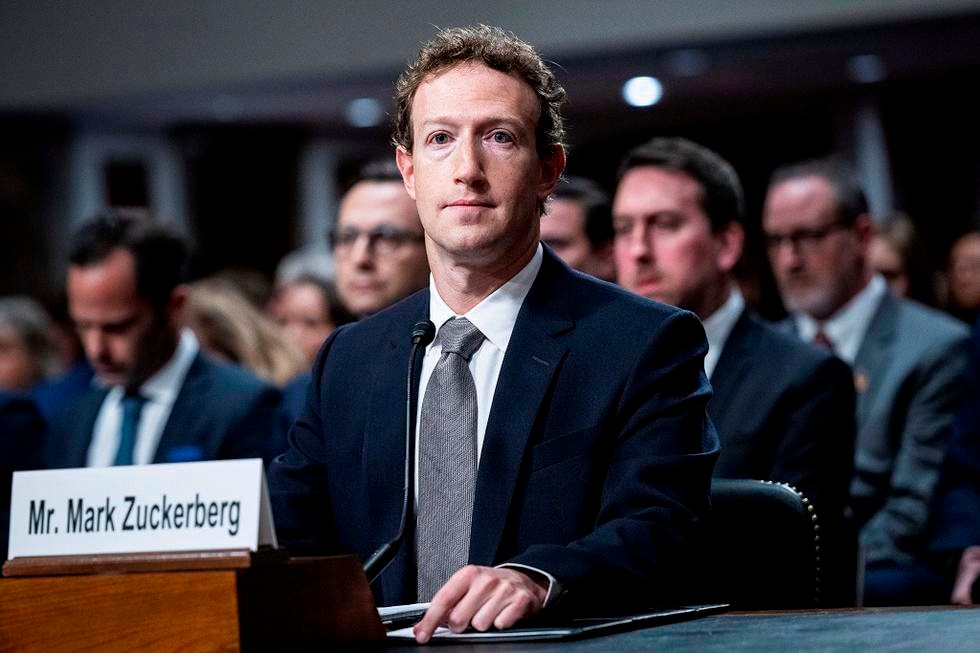

Meta Lays Off Nearly 4,000 Employees Amid AI Investment Push
Meta has launched a fresh wave of layoffs, cutting nearly 4,000 jobs—approximately 5% of its global workforce—in its ongoing effort to streamline operations. The tech giant stated that the layoffs are part of a broader strategy to remove underperformers and enhance organizational efficiency. However, the decision has sparked controversy, with some affected employees claiming they were let go despite receiving positive performance reviews.
For many workers, the news came as a shock. Several took to social media and professional networks to share their experiences, expressing confusion and frustration over the layoffs. “I had just completed a strong performance review,” one former employee wrote on LinkedIn. “I thought I was safe, but I received a notice that my position was being eliminated.” These stories have fueled criticism over Meta’s approach, with some suggesting the layoffs might not be solely performance-based but rather part of deeper cost-cutting measures.
This latest round of cuts comes as Meta continues to pivot its focus toward emerging technologies, including virtual and augmented reality initiatives under its metaverse vision. The company has faced significant financial pressures recently, including declining advertising revenues and hefty investments in future tech. CEO Mark Zuckerberg has previously referred to 2024 as a “year of efficiency” for Meta, signaling that more strategic shifts—and potentially more layoffs—could be on the horizon.
While Meta remains a powerhouse in the tech industry, the repeated job cuts have created a sense of uncertainty among its workforce. As the company moves forward with its ambitious goals, it must navigate the delicate balance between innovation and maintaining morale within its ranks.

A Sudden and Unexpected Layoff
According to Business Insider, Meta initiated mass layoffs on Monday, February 10, impacting employees across multiple regions, including North America, Europe, Asia, and Africa. The move aligns with the company’s strategy to streamline operations and increase financial resources for artificial intelligence (AI) investments.
However, not all affected employees fit the “low performer” category. At least eight former employees told Business Insider they had received “Met” or “Above Expectations” ratings in Meta’s 2024 mid-year review—yet they still lost their jobs.
“I was surprised to receive the email. My work history has been excellent, and there were no signs of performance issues in the past six months,” one laid-off employee shared.
The termination notice downgraded some employees’ performance ratings to “Meets Mostly”, which indicates they did not fully achieve their expected targets—making them eligible for dismissal.
Meta has not publicly commented on the reports.

Performance Reviews and Workforce Reductions
Meta recently completed its latest performance review cycle in December 2024, but the aftermath has been far from routine. The tech giant has launched another significant round of layoffs, cutting nearly 4,000 jobs—about 5% of its global workforce. While Meta publicly framed the move as a strategy to eliminate underperformers, leaked internal documents paint a more complex picture.
According to the leaked documents, HR managers were allegedly instructed to consider cutting employees—even those with favorable performance ratings—if necessary to meet predetermined reduction targets. This revelation has sparked criticism and raised concerns about the transparency and fairness of Meta’s layoff process. Many affected employees, some of whom had received strong performance evaluations, expressed their disbelief and disappointment on professional networks and social media.
The latest job cuts align with Meta CEO Mark Zuckerberg’s broader vision to reshape the company’s workforce while doubling down on emerging technologies. Zuckerberg has made no secret of his ambition to streamline operations and invest aggressively in artificial intelligence (AI) and virtual reality (VR). These technologies are central to Meta’s metaverse strategy, which envisions a digital future where people interact in immersive virtual environments. However, pursuing this vision has come with significant financial pressures, prompting tough decisions to maintain profitability and investor confidence.
Industry analysts believe that Meta’s restructuring may not be a one-off event. With the company’s strategic focus shifting rapidly, some predict that annual layoffs could become a standard practice. As Meta reallocates resources towards high-priority initiatives, job stability for many employees could remain uncertain.
While Meta continues to push the boundaries of technological innovation, the repeated workforce reductions risk damaging employee morale and public perception. As the company walks this fine line, its ability to balance long-term ambitions with the well-being of its workforce will be crucial in determining its future trajectory.
Meta’s Shift Towards AI and Machine Learning
Zuckerberg has been vocal about AI’s potential to replace human roles, especially in engineering.
In January 2025, he stated that AI advancements might soon allow companies, including Meta, to automate mid-level engineering tasks.
“Maybe in 2025, AI will be strong enough to handle the work of mid-level engineers at Meta and other companies,” Zuckerberg said.
As part of this transformation, Meta is ramping up hiring efforts for machine learning engineers—a critical area for AI development and implementation.

Meta’s History of Workforce Reductions
This is not the first time Meta has made massive job cuts.
– In late 2022 and early 2023, the company laid off over 20,000 employees across two waves.
– Meta spent more than $3.5 billion on these layoffs, including:
+) $2.5 billion for facility consolidation (closing and streamlining office spaces).
+) $1 billion for severance and other personnel costs.
Zuckerberg defended the move, stating it was necessary to achieve Meta’s 2023 financial goals:
– 16% revenue growth
– 69% profit growth
The company’s ability to increase revenue and profitability despite major layoffs suggests that Meta will likely continue prioritizing AI investments over workforce expansion in the future.

A New Era for Meta’s Workforce: Embracing AI and Automation
As Meta accelerates its push into AI-driven innovations, the company’s employment strategy is undergoing significant changes. Under CEO Mark Zuckerberg’s leadership, Meta is reshaping its workforce, with a clear focus on artificial intelligence and automation, signaling a transformative shift in corporate priorities.
In the past two years, layoffs have become a recurring theme at Meta, with the company cutting thousands of jobs, primarily in non-AI-related roles. Many positions in marketing, sales, and general operations have been phased out, as Meta streamlines its operations to align with its AI-first strategy. According to internal sources, the annual layoffs may become a routine measure, allowing Meta to reallocate resources toward high-priority areas.
The demand for talent is shifting within the company, with machine learning engineers, data scientists, and AI specialists being actively recruited. Meta is offering competitive packages to attract top talent in these fields, hoping to build a robust team capable of pioneering innovations in AI technology. Meanwhile, automation is poised to replace many mid-level roles, particularly in engineering and software development. By automating routine tasks, Meta aims to boost efficiency, allowing its human workforce to focus on strategic initiatives.
However, this transition is not without challenges. Many employees outside of AI and machine learning fields are facing uncertainty, with job security becoming a growing concern. The shift in strategy has also raised questions about employee morale, as departments unrelated to AI experience downsizing and restructuring.
Despite these concerns, Meta remains committed to its long-term vision. The company’s leadership believes that prioritizing AI development is crucial to maintaining a competitive edge in the fast-evolving tech industry. For now, Meta is moving forward boldly, focusing on reshaping its workforce to support its ambitious goals while continuing to cut roles that no longer align with its future direction.


















